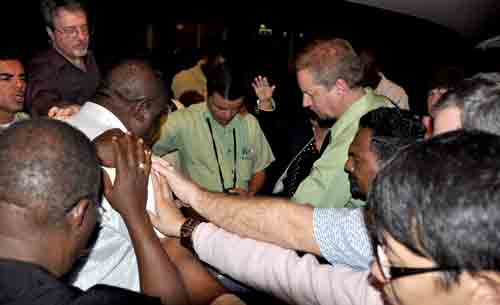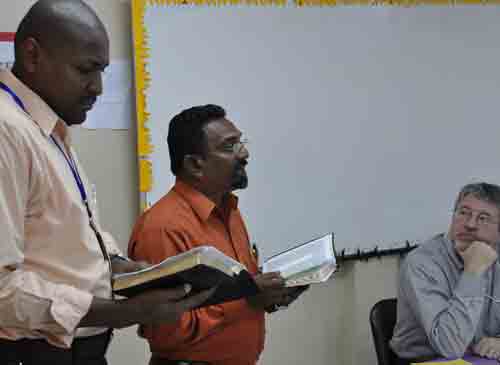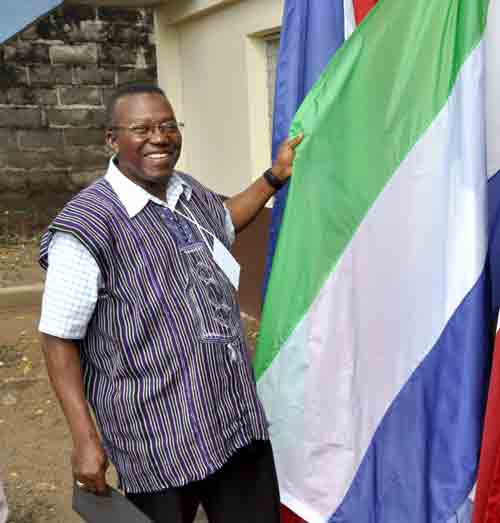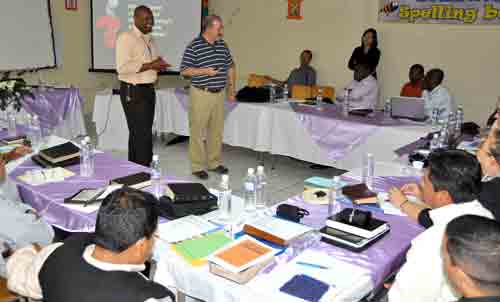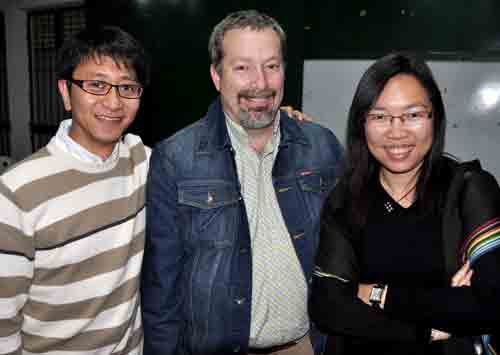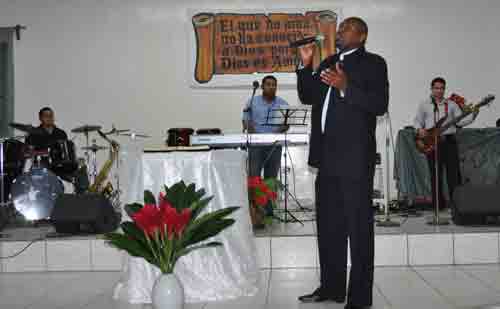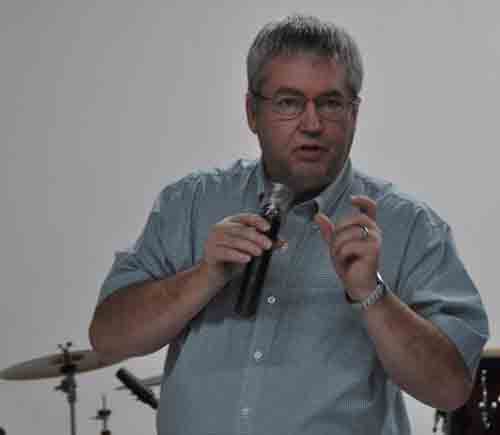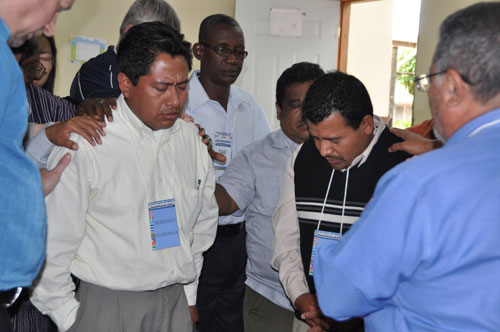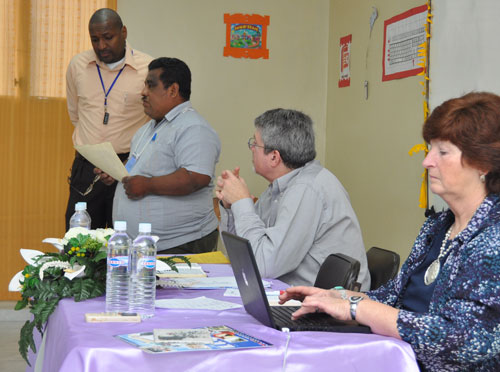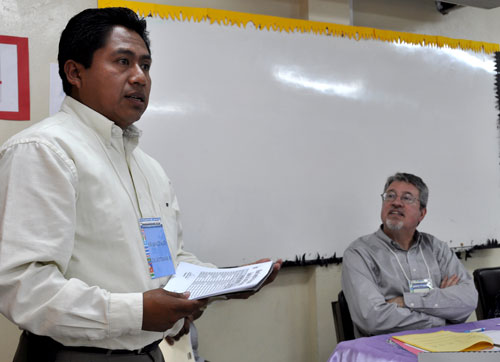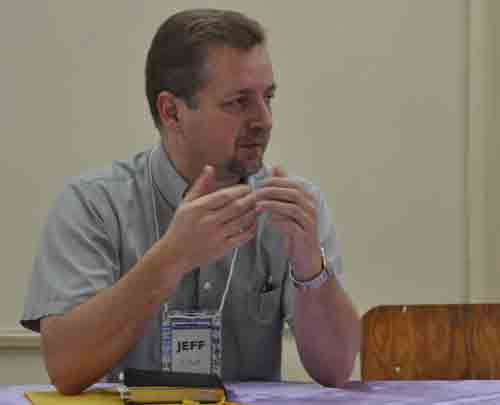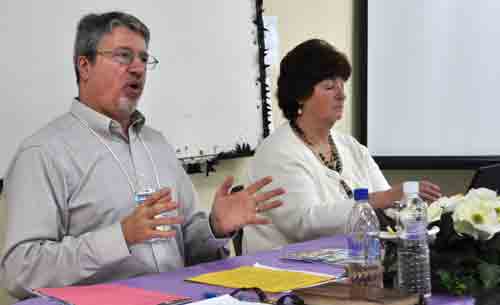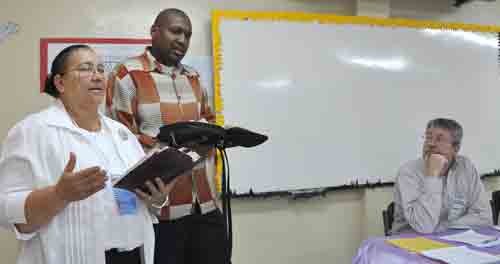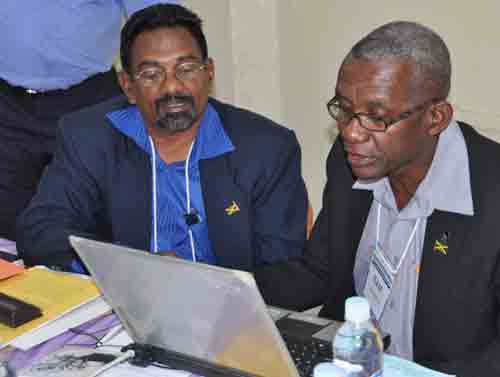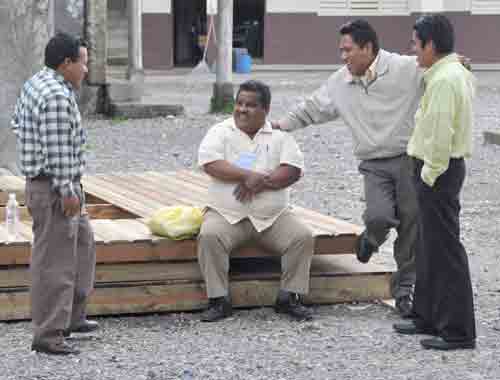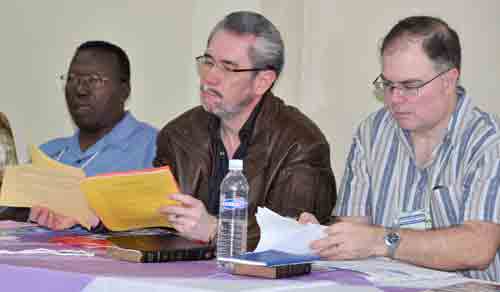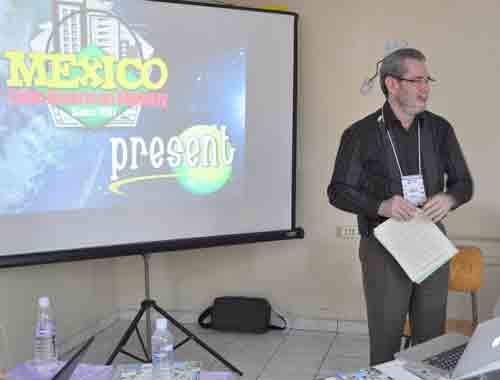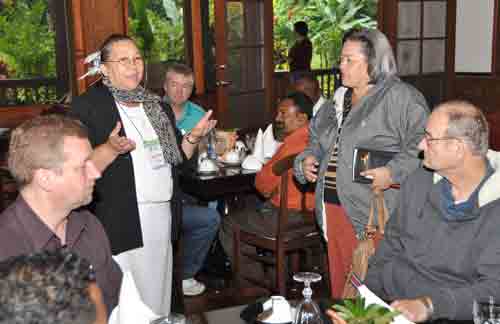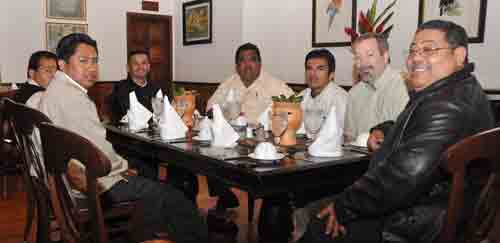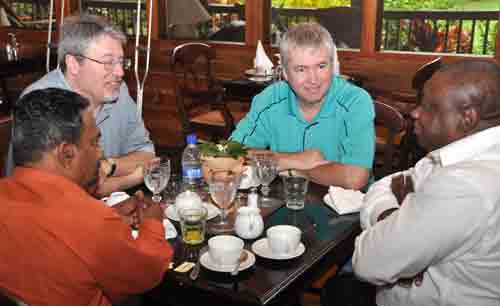January 11, 2010
|
The international General Conference began on January 10, 2010, with a 3:30 pm service in La Ceiba, Honduras. The service was held in the gymnasium of the Bethel Institute, a large, high-regarded school operated by Honduras Conference. The school shares a compound with the conference offices and the Bethel Church, the first UB Spanish-speaking church in Honduras.
The service opened with a parade of flags representing each United Brethren country and mission district repesented at General Conference. That would be nine national conferences, plus Guataemala, Haiti, El Salvador, and Costa Rica. Honduran teenagers carried the flags, escorted by younger children clad in outfits symbolic of that country.
The flags were inserted into holders on the stage, while the younger children lined across the front. Those children then took turns singing the national anthem of the country they were representing–first Mexico, then Canada, then on down the line. It was spectacular.
Here are a few other notes from the service:
A small acapella choir–about a dozen people–sang. They were all dressed in white robes with red sashes. Francisco and Maira Raudales were part of it.
There were video tributes to two Honduran giants who died during the year: Guillermo Martinez (who started out in Honduras, but is better known for his service in Nicaragua), and Helen Villanueva, a former pastor whosse father was responsible for bringing the United Brethren to Honduras.
The famous Bethel Band paraded to the front and did two numbers. It was clear why they have been named the best band in Central America.
We sang some congregational songs. When the English-speakers recognized the tune, they sang along in English.
Juanita Chavez, superintendent of Honduras Conference, gave a message. An English teacher from the Bethel School translated.
Every time reference was made to the presence of the international delegates, the congregation applauded. They were delighted to be hosting General Conference, and for the opportunity to showcase their country.
At the end of the service, all of the pastors and spouses came to the front.
The district leader read the names and churches of pastors in his/her district. One by one, this massive group of ministerial families gathered on the platform.
Jeff Bleijerveld, US Director of Global Ministries, was called forward to pray for the Honduran pastors, which he did (in Spanish). Then he introduced the international delegates and guests, who came forward and lined up in front of the Honduran pastors and families.
After a final prayer, the service ended.
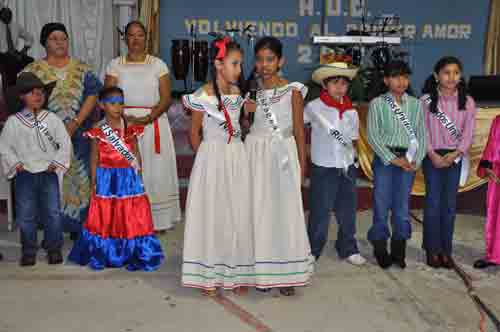
Children clad in outfits for each country represented sang the national anthem for that country.,
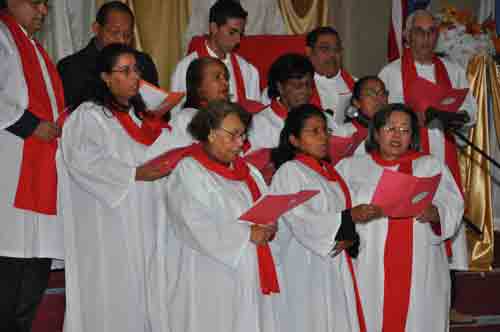
The accapella choir.
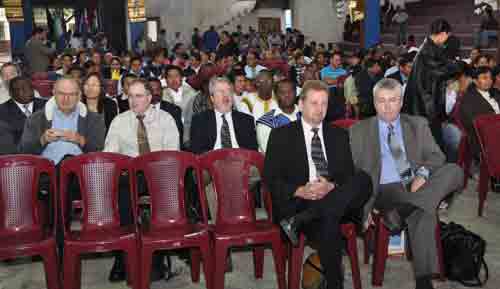
The international delegates were seated right up front.
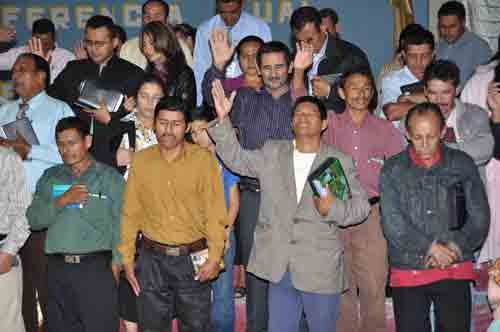
Some of the Honduran pastors and families.
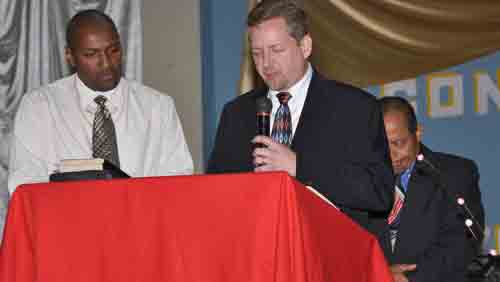
Jeff Bleijerveld prays for the Honduran pastors.
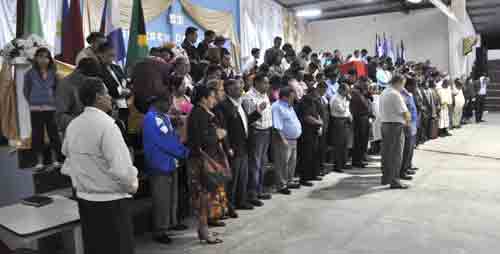
All of the Honduran pastors and families, with the international delegates in front.
The international General Conference began on January 10, 2010, with a 3:30 pm service in La Ceiba, Honduras. The service was held in the gymnasium of the Bethel Institute, a large, highly-regarded school operated by Honduras Conference. The school shares a compound with the conference offices and the Bethel Church, the first UB Spanish-speaking church in Honduras.
The service opened with a parade of flags representing each United Brethren country and mission district repesented at General Conference. That would be nine national conferences, plus Guataemala, Haiti, El Salvador, and Costa Rica. Honduran teenagers carried the flags, escorted by younger children clad in outfits symbolic of that country.
The flags were inserted into holders on the stage, while the younger children lined across the front. Those children then took turns singing the national anthem of the country they were representing–first Mexico, then Canada, then on down the line. It was spectacular.
Here are a few other notes from the service:
- A small acapella choir–a dozen people–sang. They were all dressed in white robes with red sashes. Francisco and Maira Raudales were part of it.
- There were video tributes to two Honduran giants who died during the year: Guillermo Martinez (who started out in Honduras, but is better known for his service in Nicaragua), and Helen Villanueva, a former pastor whosse father was responsible for bringing the United Brethren to Honduras.
- The famous Bethel Band paraded to the front and did two numbers. It was clear why they have been named the best band in Central America.
- We sang some congregational songs. When the English-speakers recognized the tune, they sang along in English.
- Juanita Chavez, superintendent of Honduras Conference, gave a message. An English teacher from the Bethel School translated.
- Every time reference was made to the presence of the international delegates, the congregation applauded. They were delighted to be hosting General Conference, and for the opportunity to showcase their country.
- At the end of the service, all of the pastors and spouses came to the front. It was their counterpart of the traditional “reading of the stationing committee report,” which bit the dust some years back in the States. The district leader read the names and churches of pastors in his/her district. One by one, this massive group of ministerial families assembled on the platform. They have about 100 churches and church plants.
- Jeff Bleijerveld, US Director of Global Ministries, was called forward to pray for the Honduran pastors, which he did (in Spanish). Then he introduced the international delegates and guests, who came forward and lined up in front of the Honduran pastors and families.
- After a final prayer, the service ended.
